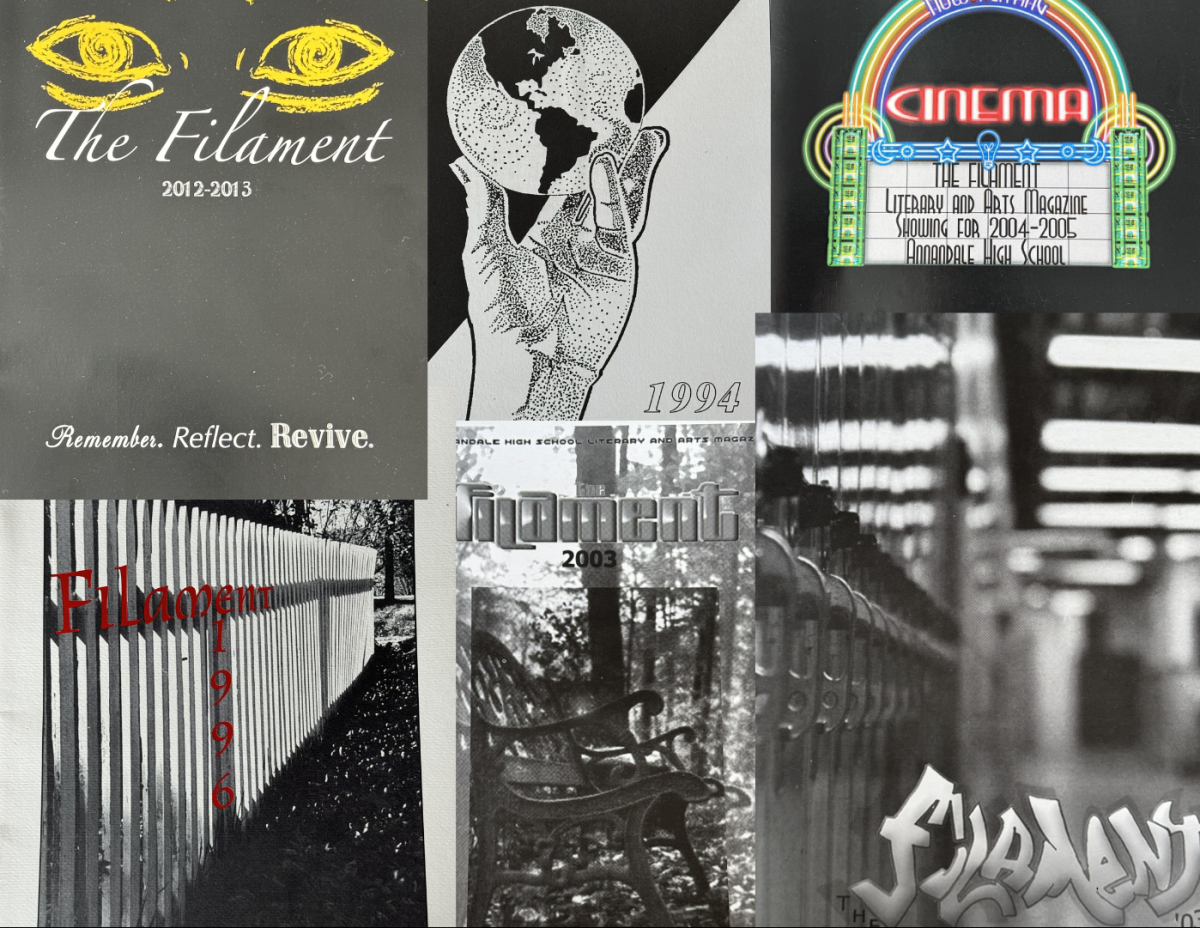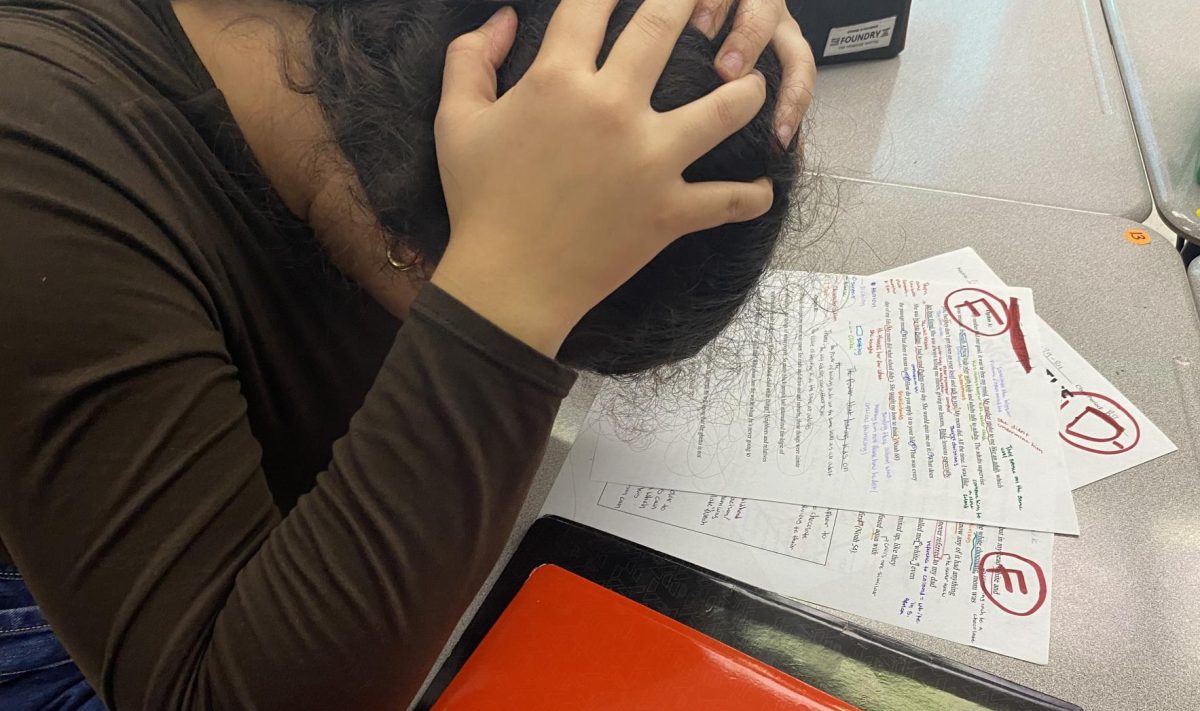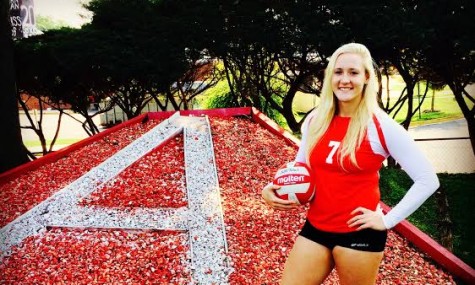Most students go through school thinking about friends, schoolwork and the latest drama. Most students do not focus on how they are getting to class. Most students see the single elevator as something that might be fun to hop on, and the ramps all over the school as slower alternatives to move from place to place.
Freshman Alex Gonzalez is not like most students. Born with the birth defect Spina Bifida, which is defined as the incomplete closure of the embryonic neural tube, Gonzalez has had to use a wheelchair to move around. While many may think that this limits him, Gonzalez sees it differently. “Everything in the life of a person in a wheelchair is different. We can do everything you can, we just do it differently,” said Gonzalez.
While this does include moving around and daily activities, Gonzalez is also referring to his love of sports. “I play basketball, tennis and ice hockey,” said Gonzalez. “It keeps me active [and] in shape, so I don’t become a blob of fat when I’m older.”
Gonzalez is a member of three separate out of school teams for people with disabilities and is also in the AHS weight training class. When Gonzalez went to Coach Adams to ask if he could join, Adams was slightly surprised. “I guess he wasn’t expecting a guy in a wheelchair to be in his class, but he let me in!” said Gonzalez.
Weight training is particularly special to Gonzalez. “My dad was in it [at AHS]. I wanted to follow in his footsteps, then I realized how tough it is, but I like the challenge,” said Gonzalez. “Coach Adams has allowed me to grow tougher in that class.”
Gonzalez also thinks that his weight-training is a source of inspiration. “Yari Mizouri and Bob Stevens are the most inspiring people I’ve met so far,” said Gonzalez. “They inspire me to do harder in the class.”
After school and on the weekends, Gonzalez pushes himself to the limits and the other sports that he plays. He does so to become more independent. “A lot of people in wheelchairs realize [their condition] and don’t think they can do anything and they become lazy,” said Gonzalez. “In the real world, they can’t do that.”
Gonzalez’s sled hockey team, the DC Sled Sharks, was created by the National Rehabilitation Hospital (NRH) in association with USA Disabled Hockey. The team ranges from ages six to sixteen and plays year round with Gonzalez as the team’s goalie. Sled hockey is played in specially-designed sleds that the players sit in, which are propelled by two short hockey sticks with metal picks on the end. All other elements of the game are the same, including the number of players, positions on the rink and the size of the hockey rink. Gonzalez has been playing for around two years, almost as long as the team has been in existence.
One of Gonzalez’s main inspirations for staying active is his parents. “My parents push me to be as independent as possible,” said Gonzalez.
However, not all parents are as supportive as Gonzalez’s are. “Nowadays with kids in wheelchairs, you don’t see parents willing to reach out to other people,” said Gonzalez, “I’m sorry to say but Hispanics seem to be ashamed of it, but thank God not my parents!”
One of the things that his parents encourage him to excel in is his tennis ability. Gonzalez has been playing tennis for a little over two years, and prefers it to his other sports. “When I’m playing a team sport, I don’t feel as if I have that much drive to win, because I have four or five people to rely on,” said Gonzalez, “When it comes to tennis, it is me and one other person, or just me, so I feel I have more of a reason to play my best.”
Gonzalez’s dream is to become a paralympian in tennis. To achieve this, he has to go to Grand Prix’s to be judged and ranked on a national scale based on performance. “You’ve got to start at the bottom and work your way up,” said Gonzalez.
Gonzalez enjoys the solitary drive and success which he achieves in tennis. He prefers singles tennis to double tennis. “It’s just me and the other guy. It gives me more of a reason to do it,” said Gonzalez, “I [don’t] have anyone to depend on. I would have to be the hero.”
In addition to becoming a paralympian, Gonzalez is also considering trying out for spring tennis at AHS. “I want to strive to be the best player out there. Even though I might not be able to go to tournaments with the team, I still want to practice with them and be one of them,” said Gonzalez.
Other activities in which Gonzalez takes part include track and field, swimming, fencing and even dancing. “When I was seven I was in a [Bolivian] dancing group,” said Gonzalez, “I knew that I was different, not because of my disability, that’s obvious, but because we all have different color skin.”
Gonzalez’s Bolivian and Colombian heritage greatly influences him. Both his parents immigrated to the United States as children. He got involved in dance groups learning traditional dances such as the Caporales to get more connected with his roots. “When I learned about [Caporales] I was really intrigued,” said Gonzalez, “I wanted to learn more about my heritage and tradition.”
A student looking to learn more of their heritage is not unusual to see at AHS. Gonzalez feels that AHS also accommodates his disability. “I think the fact that there are ramps everywhere is really awesome,” said Gonzalez, “The only thing I find discouraging is that there’s only one elevator. I’m not the only kid in a wheelchair here!”
At AHS, Gonzalez is an encouragement to others to work hard. “My parents have said that in my sports and in my day to day activities I inspire people,” said Gonzalez, “I don’t see it. I just do what I do!”
Besides his dream to become a paralympian in tennis, Gonzalez also is interested in becoming a motivational speaker. “My mom has said that my purpose in life is to inspire people to do more things,” said Gonzalez, “I love to talk, too!”
Gonzalez’s dreams are nothing that he cannot achieve. “I think I’d be okay as a motivational speaker, but obviously sports have been my main focus,” said Gonzalez, “If I could do both I’d blow the roof off I’d be so happy!”
Gonzalez is a prime example of someone who does not allow difficulties in his life to hold him back. Instead, he takes his physical disability in stride and works diligently to get the most he can out of life.










Kelsey Price • Dec 1, 2010 at 11:27 am
This article was really well written. Your reporting was thorough and your delivery of the content was very inspirational. Good job!